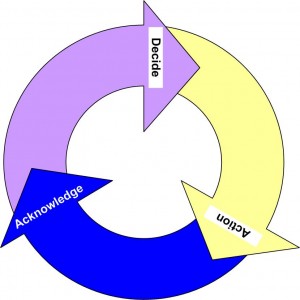Well-Being & Healthy Thinking
A healthy ‘mindset’ assists in well-being. This is not just about how happy we feel right now, but also, how empowered we are to achieve our aims.
But, what is a mindset? At least three things are important, these are: values, beliefs and our sense of identity.
Mindsets
Mindsets are typically out of our own control – that explains why so many people have their lives out of their personal control – they feel ‘adrift’ rather than in control of their life and their destiny. How about another scenario where we take control of our own mindset and set ourselves free? Changing mindset right now makes us think and feel better from now on!
Being and Doing
How we are and what we do in the world are two separate experiences. Many of us have identities that we develop from our sense of ‘what I do’. There is nothing wrong in that, per se. What we do in the world can stoke self-confidence, self-assurance and stimulate feedback from others. However, what we do is best aligned with our values, aligned with our vision and with our identity. If there is no alignment, we wear ourselves out.
Self-worth is fuelled by success which comes from ‘doing’ –but that is not enough to keep us happy. Doing and achieving are not enough to create contentment on their own. So, let’s look elsewhere: We’ll start by looking at qualities of ‘self’ that stand on their own – that is, without actual action (doing) in the world? These qualities might include factors like:
• Valuing humans
• In awe of beauty and nature
• Thinking the best in all circumstances
• Honouring all life’s experiences as natural and learning opportunities
• Feeling grateful for each day.
These are ‘being qualities rather than ‘doing’ qualities. When we add together both the ‘being’ and ‘doing’ aspects of our lives, we have a richer sense of identity and life-purpose. And these create energy that we can use to achieve more with our lives, or to make necessary changes.
[magicactionbox id=”5129″]
Fear of Change
Many of us have experienced the dilemma of wanting to do something but having been frightened of the consequences. What if I gave up? Why work? What if I trained as a counsellor? What if I led an openly gay lifestyle?
I tend to ask a question like this, “how bad does each day have to get before you will do what you want?” and a second question, “how long will it take before it gets that bad?!”
Sometimes people are willing to take a leap of faith immediately, rather than suffer long enough to find out whether they will sink or swim.
It is not enough to launch into change – we need to think through holistically – what are the impacts? How will I feel and experience my new life, if it was happening right now? Who else is in my world?
Involving Real Life
When we do get close to making changes, it is positive to tell people – this makes our decision real to us (as well as to them!). It also develops a support-network to help us on the journey. Those support-people have to be able to cope with your change and will want to encourage your change – not be negative or resisting. If you select the right people, then this experience will deepen the quality of those special relationships. You may find yourself reaching out to support them more deeply in return. Very few things are more rewarding than helping others, and in creating more depth and meaning in relationships with other people.
The Power of Acknowledgement
A business acquaintance I knew was a high achiever – the marketing director of a world-class historical attraction and regular expert columnist. His family were all landed gentry. He was connected intimately with most of the Royal Family. He was a high-achiever in multiple fields. But…. each time he succeeded in something, he moved quickly to the next project, without pausing. As a consequence, his self-worth was terribly, and tragically low. Robin surprised all of us by wading into the river Thames at Christmas. He wore a heavy overcoat. He had put heavy stones into his pockets. It was a grey, wet, cold day. He started to drown. Robin died.
In spite of all his achievements and humanity, his inability to acknowledge himself, killed him. This death, so many years ago, is as fresh in its shock and detail as it was back then.
The action of acknowledgement raises our self-confidence and self-esteem – and it is a free gift for the taking. In practice, we then find that we can achieve at a higher level because our resources are more broadly grounded.
Learning from Senior Citizens
Early in my business career, I spent a lot of time visiting residential and nursing homes for my company. The experiences left me with ambivalent feelings; I saw terrible things: care-less staff, neglect, dirt. The smell was often terrible. But it was not all bad. One of things that shone out was the character of a minority of the senior folk. These were the ones with the twinkling eyes; they smiled when they noticed you. Often they were bed-ridden and sick – but still they chose to think positively about their experiences. It started me wondering, were they always like that? Or, did they develop that ability?
I am now sure that some of them learned those skills through self-development. The question is – why would we wait? Every moment of every day is enriched if we can just ‘re-frame’ our experiences: to think and feel positive about them. We can do this by ’re-framing’ (creating a ‘mindset’) and start living, rather than drifting through emotions caused by what happens ‘to us’. We can start making a future that is right for us.
We are not powerless of course. There is much we have dominion over, if we chose to focus and act.
Everything we do is supported by our confidence. If we could buy it in packets, then most of us would be queuing at the check-out – “yes, I’ll have a box of ‘confidence’ please!” Confidence is an intangible, but that does not mean we are powerless to boost our confidence and begin that process from whatever level we happen to be at now. I help executives with lack of self-confidence at all levels of working status.
For those that have been knocked down by a series of experiences and now fear leaving their house, the process will start as it does for those who lead busy lives but who want to emigrate or change career. It is the same for a primary school teacher and for the CEO of a major, international business.
The process has three stages: Decide, Action, Acknowledge. For someone feeling paralysed and burdened by bad experiences, this may be tidying a kitchen draw for the first time in a year. For an executive burning out, it is the same: Decide, Action, Acknowledge.
Without acknowledgement we shrivle inside. Burn-out results from lack of self-acknowledgement in high-achievers. The process of acknowldgement is self-enduring and expanding. Keep the decisions realistic and achievable. Each success builds on the last, so we must continue to be successful to get the maximum benefit from our life’s work.
Acknowledgement is vital in this process.
© Angus McLeod, 2015.
[magicactionbox id=”5129″]

